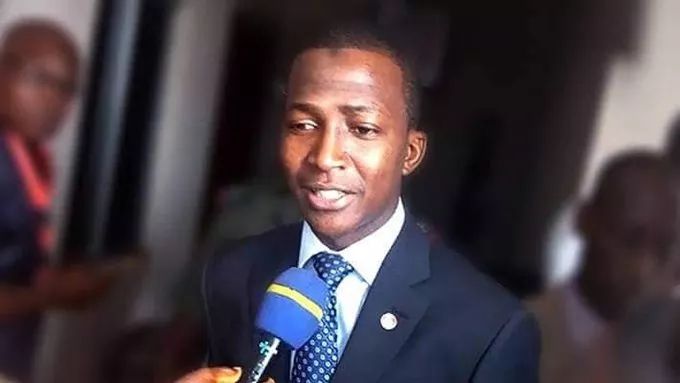The gruesome murder of 22-year-old Oluwabamise Ayanwole inside a commercial bus operated by Primero Transport Services Limited under the Bus Rapid Transit (BRT) in Lagos State has raised fresh security concerns about the spate of disappearances and killings in Nigeria, ranked as the 16th most dangerous country in the world based on 23 different indicators, including political terror, deaths from internal conflict, and murder rate.
According to a report, between January 5th and December 28th, 2021, more than 185 ritual-related deaths have been recorded across twenty (20) States in the country.
After the close of work on Saturday, February 26th, Ayanwole, the last of ten children born to her parents, reportedly boarded a BRT around Chevron Bus-stop, in the Lekki area of the state. The bus was coming from Ajah and heading towards Oshodi and she had thought to continue her trip to Idimu to spend the weekend with her elder brother, Pelumi Caleb when she met her untimely death. Her body was discovered a week later after it was dumped along the road.
Before her death, Ayanwole became suspicious after joining the empty dark bus at minutes past 7 pm when the driver refused to pick up other passengers. She confided in one of her friends, a colleague from work and expressed her fears, making both audio and video recordings that eventually help to identify the particular bus she had boarded, as the number of the bus was inscribed at an angle inside the bus.
The Police said her corpse was later found lying on the Carter Bridge by Ogogoro Community, Lagos Island, but eyewitnesses said Ayanwole was still alive as at the time she was thrown out of the moving bus, with her lower region exposed. Her family has also claimed that her death was ritually motivated, alleging that certain parts of her body were missing, but the Police has countered the claim of body parts missing.
Meanwhile, a magistrate court in Yaba has ordered that the arrested driver of the bus, Andrew Nice Omininikoron, be remanded in prison until April 11. No other suspect has been named in connection with the murder even though Ayanwole had hinted to her friend that the driver later picked two other men and one woman.
“The police and the Department of State Service (DSS) picked up the driver, who ran to another state, where he was arrested. The full wrath of the law will be applied to whoever is found wanting in this matter and we will ensure the incident does not repeat itself,” Governor of Lagos State, Babajide Sanwo-Olu said.
Ayanwole’s murder is certainly not the first to occur in the State this year and becomes the fifth viral case of suspected ritual killings in the country since 2022. In January, operatives of the Lagos State Police Command had arrested one 32-year-old man identified as Afeez Olalere, during a stop-and-search operation along Itamaga, Ikorodu Road, in Lagos for conniving with his mother to kill his 21-year-old brother for rituals.
“My mother took me to a herbalist who told me if I want to be successful in the yahoo business, I will have to sacrifice one life and that person must be a sibling to me. The things he would need to prepare a concoction with are his thumbs, his hair, fingers and a passport photograph,” he confessed.
Olalere, a suspected internet fraudster, who was in possession of his brother’s head and other body parts which he served from the body when he was arrested by the Police said his mother suggested that they use his younger brother since he was only 21 years old and she provided the poison which was used to lace his food.
While the country reeled from the shock of this confession, the homicide of Sofiat Kehinde and Jennifer Anthony, both 20-years-old in separate events in Ogun and Plateau States by their lovers made news and it was discovered that parts of their bodies were also mutilated for the purpose of getting rich quick.
Kehinde’s 18-year-old lover, Soliu Majekodunmi, confessed he killed her with the assistance of three of his friends, cut off her head and burnt it because they wanted to ride exotic cars and live in luxury apartments. Anthony’s killer, Moses Oko, was arrested on January 11 in Benue State where he fled to escape justice and now feigns to be mentally unstable as he faces trial.
Another suspected ritual killer, Timothy Odeniyi, 35, was arrested by men of the Amotekun Corps in Ondo State, for being in possession of fresh human parts which he was to deliver to his “boss” in Lagos state in exchange for N30 million.
Although Odeniyi claimed he did not kill anyone but only harvested the parts from a dead body at a cemetery, the Commander of Amotekun Corps in the state, Akogun Adeleye, said the suspect killed an unidentified man, severed his body parts and buried his remains in a shallow grave.
“We want to intimate the public on the need to be very careful. Of late, the trend is shifting gradually from daily kidnapping to ritual killings. The public should be careful of the craze to make money by these young men,” Adeleye warned.
In the meantime, two young ladies – Miracle Omeh and Temitope Abiodun Omisina – have been reported missing since last month. Omisina reportedly travelled to Ibadan and was returning to Lagos on the night of Thursday, February 17th, 2022 but has not returned home, while Omeh went missing on Saturday, February 12th 2022 after she went to visit a relation at the University of Nigeria, Nsukka (UNN), and their whereabouts remain unknown.
On March 8th, 28-year-old Ifeanyi Anigbo, a first-class alumnus of the Pan-Atlantic University was declared missing. He was reportedly last seen on Wednesday, March 2nd around the Catholic Church of the Annunciation, Abraham Adesanya Estate, Ajah Lagos.
The never-ending spate of ritual killings in the country has sent shivers to Nigerians, who are now very worried even as Nigeria is ranked as the 16th most dangerous country to live in.
While Nigerians join their friends and families to pray for their safe return, the House of Representatives has called for measures to beef up security and urged President Muhammadu Buhari to declare a state of emergency on ritual killings in the country.










